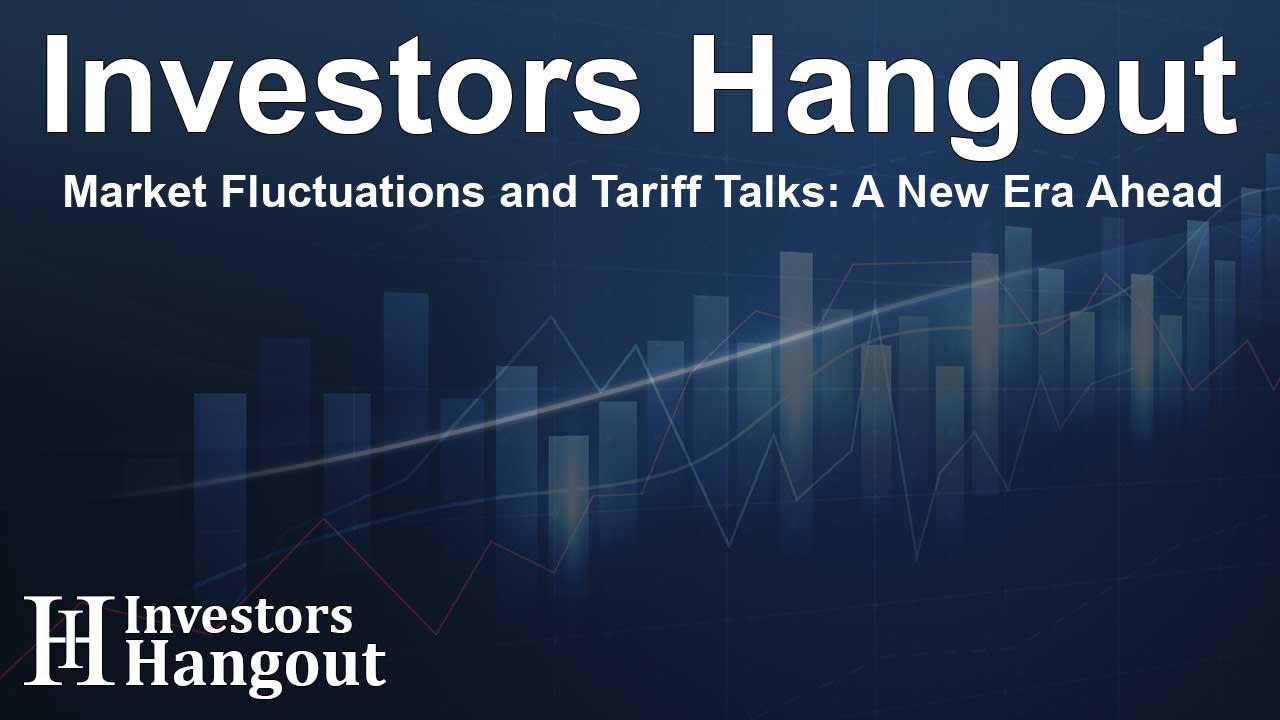Market Fluctuations and Tariff Talks: A New Era Ahead

A Shifting Landscape in Market Dynamics
As we delve into the currents of global markets, we find ourselves navigating the twists and turns of stock and currency fluctuations. The first day of the new presidency has offered a glimpse into the unpredictable nature of economic policies, particularly those revolving around trade tariffs.
Initial Market Reactions to New Policies
The commencement of Donald Trump's presidency has not gone unnoticed by financial analysts and investors alike. On his inaugural day, markets experienced considerable volatility as participants tried to decipher his intentions regarding trade policies. After markets closed, the sense of uncertainty around tariffs began to weigh heavily on the dollar.
Uncertainty and Tariff Discussions
Despite speculation leading up to the inauguration, Trump's administration did not unveil any concrete measures concerning previously promised trade tariffs. This delay allowed the dollar to initially stabilize, but expectations quickly shifted when Trump made remarks about potential tariffs on imports from neighboring countries.
Impact on Dollar and Global Stocks
This sudden announcement about the possibility of imposing 25% tariffs on goods from Mexico and Canada generated a ripple effect, leading to a dramatic decline in the dollar index. Global stock markets, particularly in Europe and Asia, seemed to react fervently, moving in response to these development signals.
A Closer Look at Domestic Markets
As Wall Street geared up to resume trading after the public holiday, index futures indicated a modest opening, reflecting a balance between optimism and caution among investors. The tech powerhouse Netflix is set to take center stage, drawing attention during the crucial earnings season.
Bond Market Reactions
The implications of these developments were evident in the bond markets as well. As uncertainty loomed, U.S. Treasury yields saw a retreat, with traders positioning themselves for possible shifts in monetary policy. With the yield gap narrowing, observers are closely monitoring these fluctuations as indicators of economic sentiment.
Energy Markets Under Scrutiny
Trump's focus on bolstering domestic oil and gas production has not only influenced energy prices but also altered investor sentiment towards alternative energy sectors. This has resulted in declines for companies involved in renewable energy initiatives as the administration seems poised to roll back regulations aimed at fostering clean energy development.
Emerging Signs of Market Recovery
Despite the challenges from evolving policies, there are signs of resilience. The stock index indicating corporate performance has shown a positive trajectory, with leaders like Netflix expected to bolster confidence among investors with upcoming earnings reports.
Employment Trends and Their Economic Ramifications
Looking beyond the U.S., the employment landscape reveals mixed signals. The U.K. has reported robust wage growth alongside signs of a cooling job market, creating a perplexing environment for economic strategists. The implications of these trends could influence monetary policy decisions on both sides of the Atlantic.
Key Indicators to Watch
As the trading week unfolds, participants in the financial markets will need to keep an eye on several key developments. Canadian consumer price inflation metrics and substantial corporate earnings releases will likely provide deeper insights into market health and consumer confidence.
Frequently Asked Questions
What are the key factors influencing today's markets?
Market fluctuations are heavily influenced by potential trade tariffs, economic policies from the new administration, and earnings reports from major corporations.
How does tariff talk impact the dollar?
Speculation over tariffs can lead to significant volatility in the dollar, as investors react to potential shifts in trade policy and economic relations.
What role does bond yield play in the market?
Bond yields serve as indicators of economic confidence, with movements suggesting investor sentiment towards growth prospects and monetary policy directions.
How might employment trends affect markets?
Employment reports that indicate strong wage growth can signal inflationary pressures, while a reduction in jobs can raise concerns about economic slowdown.
What should investors focus on in the coming weeks?
Investors should monitor corporate earnings announcements, inflation data, and economic indicators that reflect consumer sentiment and market health.
About The Author
Contact Ryan Hughes privately here. Or send an email with ATTN: Ryan Hughes as the subject to contact@investorshangout.com.
About Investors Hangout
Investors Hangout is a leading online stock forum for financial discussion and learning, offering a wide range of free tools and resources. It draws in traders of all levels, who exchange market knowledge, investigate trading tactics, and keep an eye on industry developments in real time. Featuring financial articles, stock message boards, quotes, charts, company profiles, and live news updates. Through cooperative learning and a wealth of informational resources, it helps users from novices creating their first portfolios to experts honing their techniques. Join Investors Hangout today: https://investorshangout.com/
The content of this article is based on factual, publicly available information and does not represent legal, financial, or investment advice. Investors Hangout does not offer financial advice, and the author is not a licensed financial advisor. Consult a qualified advisor before making any financial or investment decisions based on this article. This article should not be considered advice to purchase, sell, or hold any securities or other investments. If any of the material provided here is inaccurate, please contact us for corrections.
